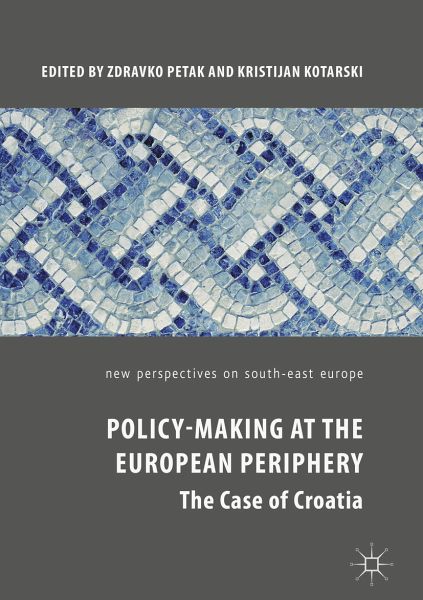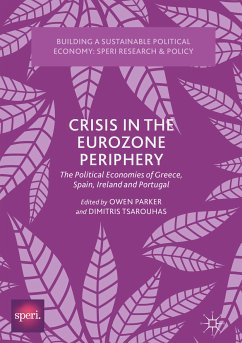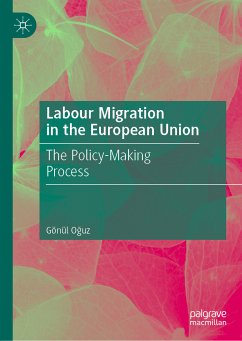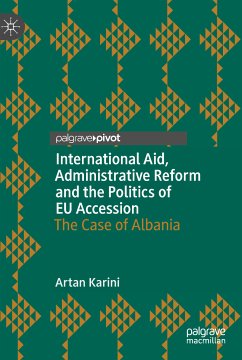
Policy-Making at the European Periphery (eBook, PDF)
The Case of Croatia
Redaktion: Petak, Zdravko; Kotarski, Kristijan
Versandkostenfrei!
Sofort per Download lieferbar
104,95 €
inkl. MwSt.
Weitere Ausgaben:

PAYBACK Punkte
52 °P sammeln!
This book examines Croatia's economic and political transformation over the last 30 years. It brings together the best political scientists, macroeconomists and public finance experts from Croatia to provide an in-depth analysis of the Croatian policy-making context and the impact of Europeanization upon its domestic institutional framework. The second part of the book scrutinizes the political economy context and Croatia's long-term macroeconomic under-performance, especially in comparison to other transition economies. The final part explores sectoral public policies, including cohesion poli...
This book examines Croatia's economic and political transformation over the last 30 years. It brings together the best political scientists, macroeconomists and public finance experts from Croatia to provide an in-depth analysis of the Croatian policy-making context and the impact of Europeanization upon its domestic institutional framework. The second part of the book scrutinizes the political economy context and Croatia's long-term macroeconomic under-performance, especially in comparison to other transition economies. The final part explores sectoral public policies, including cohesion policy, education, health, pensions, and local government. The book offers a unique blend of Croatia's political economy framework and public policy analysis.
Dieser Download kann aus rechtlichen Gründen nur mit Rechnungsadresse in A, B, BG, CY, CZ, D, DK, EW, E, FIN, F, GR, HR, H, IRL, I, LT, L, LR, M, NL, PL, P, R, S, SLO, SK ausgeliefert werden.












